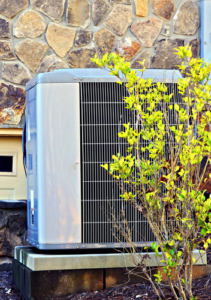Owning a home HVAC unit can be wonderful, especially when the weather outside is uncomfortably warm. However, the performance of your air conditioner can be affected in numerous ways, some of which can distress its cooling abilities significantly. If you are experiencing trouble with your air conditioner, you may wonder whether to replace it or not. Do you need a brand-new unit, or can your existing system be salvaged with some repair work from trusted professionals? Different circumstances will demand different approaches.
There are many situations in which you can solve problems with your home HVAC unit by having it repaired, but the replacement will be more cost-effective in some instances. Knowing when to repair and when to replace can save you a lot of time and money, especially if you live in an area where having a functional home HVAC unit is essential. Fortunately, we’ve put together a guide that can help. Review the information below carefully so that you can learn the difference between a problem that calls for service and one that demands a brand-new system.
- Age: It’s Not Just a Number when it Comes to Your Home HVAC Unit

You might only be as old as you feel, but unfortunately the same cannot be said of your HVAC. In fact, the age of your system is one of the most important factors to consider when deliberating whether to replace it. The rule of thumb is that you should replace your HVAC system when the heat pump or air conditioner is more than ten years old, or if your furnace or boiler is more than 15 years old. However, some technicians propose using the “5,000 rule” as an alternative.
- What is the “5,000 Rule”?
The “5,000 rule” works like this: multiply the age of your air conditioner (in years) by the repair cost (in dollars). If the total is less than 5,000, repair the unit. Otherwise, replace it. HVAC owners who use this rule may find that repairs are still cost-effective for systems that are older than ten years. For example, if your system is 12 years old, but the proposed repairs will only cost $250, the total will just be 3,000—well within the acceptable range for repairs.
- Remember: Specific Problems Require Specific Solutions
The rules mentioned above can be useful in general cases, but sometimes you will experience particular difficulties with your unit, even when it passes them. For example, what should you do when your system is cooling some parts of your home but not others? Moreover, what should you do if you just serviced your system but can’t feel any difference when using it? Such problems call for more than a rule of thumb.
Let’s look at the first example in greater detail. The most common reason an HVAC will affect some rooms more than others is that there is a problem with the ductwork. When your ducts are blocked, air may be unable to circulate throughout your entire home. If this is the case, you may experience excellent heating and cooling—but only in part of your house. However, this is not a reason to replace your entire HVAC system. Instead, it will be much more cost-effective to call a service technician to come over and clean your ductwork. Find a licensed technician in your area with plenty of experience, so that you can enjoy reliable and reasonably-priced assistance.
Perhaps you have recently arranged for HVAC service, but your system still isn’t performing the way it once did. If repeated repairs have failed to produce improvements, it may be a better idea to replace the system before those repair costs have a chance to accumulate into serious expenses.
- Invest in Service the Way You Would Invest in a New HVAC
Whether you decide to seek repairs or replacements, it is always best to trust qualified technicians with the job. Look for an established company that enjoys a sterling reputation within the area to perform your maintenance, repairs, or installation of any new products. Qualified technicians take a detail-oriented approach that solves problems quickly and thoroughly, and will work hard to make sure any replacement system you purchase is appropriately sized and installed.
- Take Care of a Home HVAC Unit, and It Will Take Care of You
Replacement will probably be necessary at a certain point in the life of your home HVAC unit, but you can put it off for years with proper maintenance and service. Choose technicians you can trust, and make sure to have them check your system out at least twice a year for impending red flags that could affect its lifespan. If you do need to replace your system, make sure the people you choose to do it are similarly trustworthy and experienced. Follow this advice, and you’ll have a much more rewarding experience with the HVAC in your home—whether it’s new or old.
